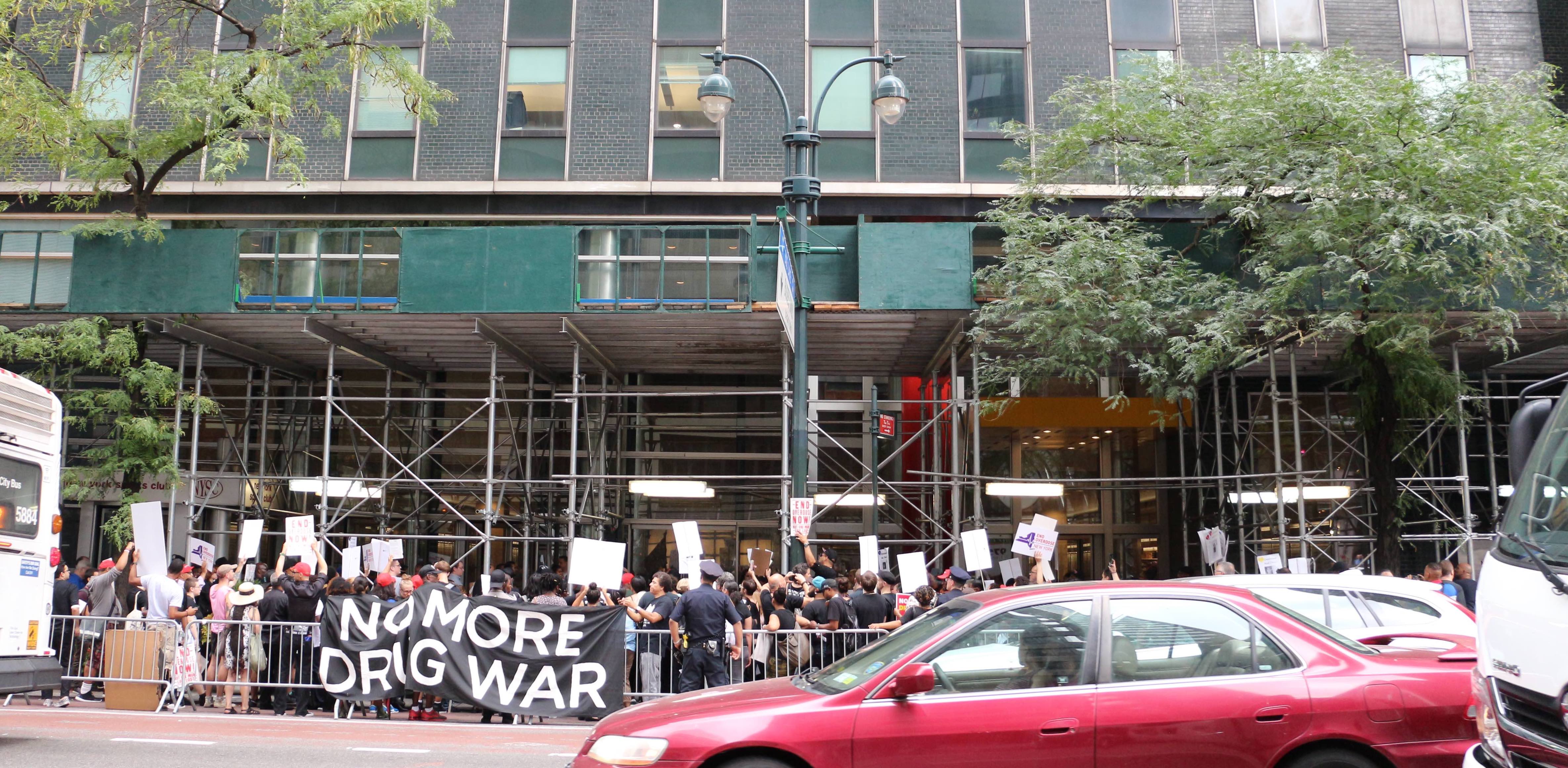Drug reform, now
Overwhelmingly, law enforcement has emerged as the New South Wales government’s primary response to drug use. Since 2006, state and federal governments across Australia have pursued tough-on-drugs policies: from Tony Abbott’s ‘Dob in a Dealer’ hotline, to the punitive policing of festivals and train stations with sniffer dogs, and the continued failure to introduce widespread pill testing stations.
The ground-breaking Report of the Global Commission on Drug Policy declares, ‘the global war on drugs has failed’. This is certainly the case in Australia. Our region has the highest rate of deaths associated with amphetamine dependence in the world. No matter how severe the government’s anti-drug rhetoric is, people will (and do) continue to use them – the question is whether they are supported to reduce the associated harms.
For many, the criminalisation of drug use only raises the risks. In the year from October 2019 to September 2020, NSW Police recorded over 39,000 people for using or possessing drugs – a statistic that does not include drug importation, manufacturing or dealing.
In other words, the ‘war on drugs’ is actually a war on people who use drugs - and a targeted and racially discriminatory one at that. In June 2020, The Guardian revealed that between 2013 and 2017, the NSW Police pursued more than 80% of First Nations people found with small amounts of cannabis through the courts while letting others off with warnings.
Histories of harm reduction
But Australia's policy approach hasn't always been punitive. In 1985, Bob Hawke gathered all premiers from across the country in a national ‘Drug Summit’, and in 1999 New South Wales organised its own Drug Summit. Following these, NSW set up a Medically Supervised Injecting Centre in Kings Cross, where nurses have since supervised over 1 million injections and managed more than 8500 overdoses without a single death. Naloxone was made more available for people experiencing opioid overdoses, and methadone programs across the state were expanded. A Youth Drug Court diverted kids away from prisons by connecting them with counselling and rehab support – a vital program that was suddenly axed in 2012. Harm reduction programs like these, which seek to minimise the risks associated with drug use, treat people who use drugs with care and dignity.
Now, the momentum of drug reform pursued from the 1980s to the early 2000s has largely stagnated, so much so that NSW has ‘no formal drug policy plan in place’. But, there are indications that the current Liberal government is now reconsidering its approach.
The Ice Inquiry and new possibility for drug reform
In November 2018, the government established the Special Commission of Inquiry into the Drug 'Ice'. The Final Report’s 109 recommendations lay out a clear vision for drug reform in this state, including recognising drug use as a social and health issue and decriminalising the use and possession of all drugs.
Health Minister Brad Hazzard has already rejected a number of the Inquiry’s key recommendations, including introducing syringe programs in prisons, ceasing the use of drug detection dogs, expanding medically supervised injecting centres, and introducing substance testing services. It’s an unfortunate response, given that programs such as pill testing trials at a music festival in the ACT have already prevented young people from consuming N-ethyl pentylone, a dangerous substance linked to a number of previous festival-goer deaths.
But some of the Ice Inquiry’s recommendations are still on the table. One Cabinet leak revealed that the government is considering a proposal to dramatically decrease penalties for drug possession.
This issue of The Law Reform Bulletin compiles a number of experts from the community legal and community sectors to examine how urgent, and necessary, drug reform is. Our authors ask: What are the unique experiences of drug policy in rural, regional and remote communities? What patterns of discrimination might be replicated if police have the discretion to prosecute drug possession? What lessons can we learn from community harm reduction approaches during the HIV/AIDS crisis? How could restorative justice reshape the way we understand complex trauma? How are peer-led programs already working on-the-ground in NSW? And, looking forward, what can we learn from the radical policy experiments overseas?
The key message that emerges is: people’s lives depend on radical and innovative approaches to drug use that reduces community contact with the criminal justice system. Let’s listen to the overwhelming evidence that if we want our communities to be safer, we should decriminalise drug use and moving towards a more caring, healing and community-led approach to drug use.









